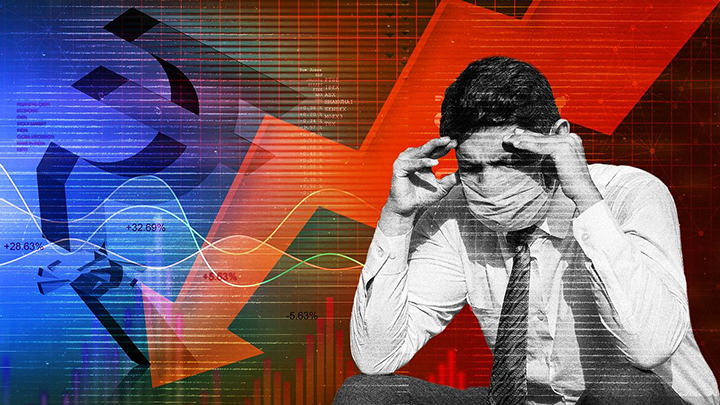
India first declared its quarterly gross domestic product, or GDP, figures for the period April to June 1996. GDP is a measure of the economic size of a country. Between 1996 and March 2020, India’s GDP never contracted in comparison with the same period in the previous year.
But, as they say, there is always a first time.
India’s GDP for the period April to June 2020 contracted by 23.9 percent. But even this could be an underestimate. There are two reasons for this. One is that the real state of the huge informal sector in the country is captured only over a period of time, as more and more data comes in, and not immediately (which is why it is called informal in the first place).
Further, the data for the smaller, unlisted businesses also comes in over a period of time. The informal sector and small businesses have been hit the hardest by the coronavirus pandemic. Once this is accounted for, the chances of the GDP figure being revised downward are pretty high. And this would mean an even bigger contraction than 23.9 percent.
Dear reader, you might be wondering by now that all this is fine, but why should I be worried when it does not really impact me. At least, not in any direct way. Well, my job is safe. My earnings haven’t been impacted. I haven’t defaulted on any loans. I have paid my taxes on time. My life goes on as it was.
Here’s the thing. When the economy contracts by nearly a fourth, it is bound to impact all our lives, one way or another. We just may not be aware of it. Let’s take a look at this pointwise.
With no need to drive to work, people will no longer want to employ drivers. Hence, jobs will be lost. This is already happening. Over and above this, the demand for app-based cabs will go down. This will mean a further loss of economic activity.
The small eating joints around and outside many Indian corporate parks that sell good food at attractive prices will continue to lose out on business. There is a grave danger of these joints having to simply shut down. Hence, coronavirus will end up destroying Pakodanomics as well.
Further, it might even need a possible redesign of how homes have been laid out up until now. Home wear is now selling more than formal wear and so are chappals. These are business opportunities.
Many businesses, in order to stay afloat, have fired employees. Some have cut salaries. Some others have rescinded on the job offers they made. Even businesses that are on a strong wicket have given only bare-minimum increments to their employees this year.
This can have a multiplier effect. Let’s say you run a kirana shop in an area where many people working in the BPO sector stay, and have lost their jobs. It is but natural that they will cut down on their spending and your earnings will fall as a result. It is worth repeating the cliché here that one man’s spending is another man’s income at the end of the day.
To conclude, the impact of an economic contraction on an average individual isn’t always in a direct way, like job losses or salary cuts. There are indirect ways as well.
Dear reader, since no one knows you better than you yourself, you need to sit and figure these effects out. If you haven’t thought of any negative effects already, then clearly you haven’t heard the bad news yet.
Vivek Kaul is the author of Bad Money.
www.newslaundry.com
The magistrate said the probe reveals that multiple associates could be absconding, which could tamper…
The cylinder blast injured six police and fire personnel deployed at the house where a…
Multiple operational teams have been deployed to probe the case. Crime and Forensic Science Laboratory…
The initiative focused on a victim-centric approach and aimed at strengthening public trust through proactive…
Six of the suspects have been arrested from different parts of Tamil Nadu and will…
The weather department has predicted a mainly clear sky during the day with the maximum…